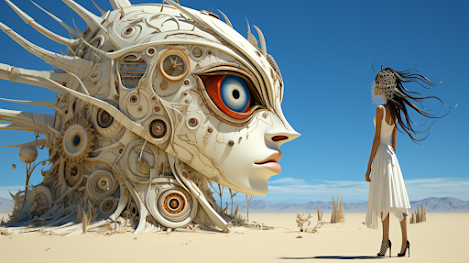🎨 AI Art and Copyright: The Current Landscape
United States: Human Authorship Remains Central
The U.S. Copyright Office has reaffirmed that works created entirely by AI without meaningful human input are not eligible for copyright protection. However, if a human's creative contribution is evident—such as through the selection, arrangement, or modification of AI-generated content—copyright protection may be granted.
This stance was underscored by a recent ruling from the U.S. Court of Appeals, which denied copyright protection for purely AI-generated works, emphasising the necessity of human authorship.
United Kingdom: Debates Over AI Training and Copyright
In the UK, proposed reforms to copyright law have sparked controversy. The government's plan to allow AI developers to use copyrighted materials for training without prior permission—unless creators opt out—has been met with strong opposition from artists and industry groups. Critics argue that this approach undermines creators' rights and lacks transparency.
Amendments to the Data (Use and Access) Bill are being considered to address these concerns, but the debate highlights the tension between fostering AI innovation and protecting intellectual property rights.
Global Perspectives: Legal Challenges and Reforms
-
India: The government has established a panel to review copyright laws in response to legal challenges involving AI, particularly concerning the unauthorised use of copyrighted materials for training AI models.
-
China: A landmark ruling recognised copyright protection for an AI-generated image, provided it demonstrates originality and reflects human intellectual effort.
-
European Union: The proposed Artificial Intelligence Act includes requirements for transparency in AI training data and labelling of AI-generated content, aiming to balance innovation with rights protection. Wikipedia
🧠 Legal Battles and Industry Responses
Major tech companies are facing lawsuits over the use of copyrighted materials in training AI models. For instance, Meta is involved in a significant case where authors allege unauthorised use of their works, raising questions about fair use and market impact.
These legal challenges are prompting discussions about the need for clearer regulations and the potential for new licensing frameworks to ensure that creators are fairly compensated.
🧩 Navigating the Future of AI Art
The intersection of AI and art presents both opportunities and challenges. As legal frameworks evolve, it's crucial for artists, developers, and policymakers to engage in ongoing dialogue to ensure that innovation does not come at the expense of creators' rights.
For those involved in AI-generated art, staying informed about legal developments and advocating for fair practices will be key to navigating this complex landscape.
🔗 Explore More on AI Art and Copyright
For a deeper dive into the evolving world of AI-generated art and its legal implications, visit AIArtConsult.com. Our platform offers insights, resources, and expert analyses to help you stay ahead in this dynamic field.



Comments
Post a Comment